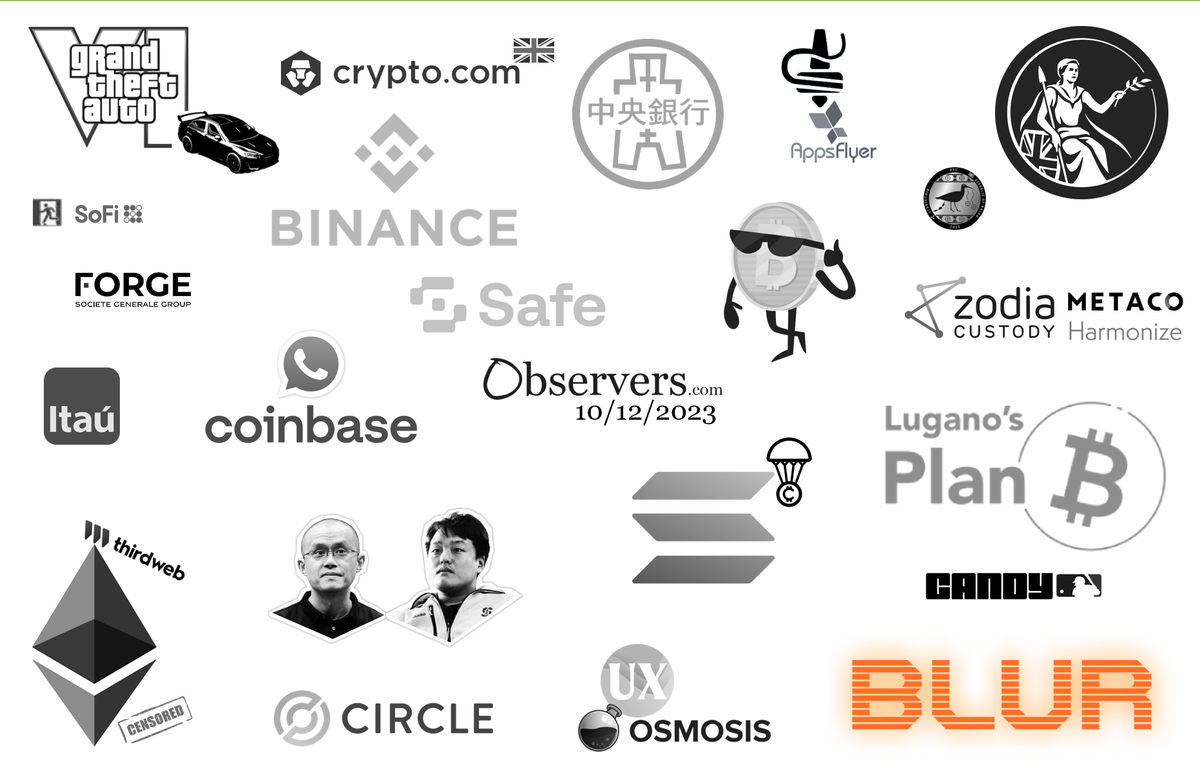
The Grand Theft Auto VI trailer was released earlier in the week, and racked up a record 90 million views on YouTube in its first 24 hours. Set in the Miami-inspired Vice City, GTA VI will allow players to cause criminal mayhem and potentially looks set to become one of the greatest games of all time.
But who (or what) is considered the GOAT in the crypto world this week? And who is simply criminal? Read on to find out.
Mirror, mirror, on the wall, which is the best blockchain network of them all? Well, it all depends on what you are looking for, of course. For airdrop hunters, Solana is looking like a fairly good bet at the moment, while for DeFi, the recent merger between Osmosis DEX and UX lending platform has put Cosmos firmly on the map.
Ethereum might not be the decentralized censorship-free paradise that we were initially promised. Increased usage of MEV-boost has meant that 90% of blocks are now created by builders, and four of the top five builders block transactions based on U.S. sanctions. However, Bitcoin's Proof of Work has been touted as a potential defender of national security by a major in the U.S. Space Force.
The crypto OG might want to deal with the current controversy over the Bitcoin Ordinals standard first. The NFT-esque technology has been attributed to a bug in the code which will eventually be fixed, by Core developer Luke Dashjr. That hasn't dampened the mood of its supporters, who continue to speculate on Ordinals, contributing to high transaction fees and network congestion.
NFTs seem to be having a moment across the board, with Ethereum-based NFT sales almost doubling in November compared to October. The big winner from this renewed interest is undoubtedly the Blur marketplace, which now holds almost 80% of the total market share by volume. Of course, the majority of this increased trade is down to existing traders, but Candy Digital is trying to onboard a whole new wave of NFT fans, with its Major League Baseball commemorative NFT tickets for 'checking-in' at games.
Thirdweb caused a stir when it announced that it had found a vulnerability in some common pre-built smart contracts. However, its mitigation seems to be working, with 8,000 smart contracts secured in 48 hours, and only two reportedly being exploited. No such joy for users of Safe Wallet, who have been targeted by an attacker using 'address poisoning' which has netted $2 million in the past week alone. Address poisoning relies on user inattention, so can be foiled by simply double-checking wallet addresses before hitting 'send'.
USDC issuer Circle was compelled to write to U.S. senators on the banking committee this week to point out that it did not finance terrorists (or Justin Sun). It hasn't been confirmed which of these options the banking committee was most concerned about. However, two of Justin Sun's fellow crypto moguls may get the chance to meet up in the U.S. for a play date (or something). Binance's CZ is being held in the country pending his sentencing on money-laundering charges, and Terra chief Do Kwon is reportedly being extradited to the U.S. by Montenegran authorities.
Since CZ stepped down as its CEO, Binance has set about reinventing itself as a rule-following and trusted bastion of the crypto space. This week it launched a pilot program allowing institutions to trade using collateral held at third-party banks instead of deposited onto the exchange, to reduce counter-party risk. The exchange also committed to compensating traders who had 'accidentally' tried to make a fast buck by speculating on a euro-pegged stablecoin.
Fellow exchange Coinbase implemented a system for sending payments via social media (or pretty much any medium capable of transferring a web link). The recipient is required to download the Coinbase app in order to receive the funds, and the exchange hopes that this will increase crypto (and Coinbase) adoption. Meanwhile, Crypto.com has bagged itself an Electronic Money Institution license in the U.K., which will (as the name suggests) allow it to issue electronic money in the country.
Our Banking and CBDC Roundup included three new collaborations from Zodia Custody, crypto trading from Brazil's largest bank, Brits worrying about risks, Societe Generale issuing tokenized bonds and a euro stablecoin, and Taiwan's plans for a CBDC future.
FinTech SoFi has pulled out of the crypto market due to U.S. regulatory uncertainty. The company didn't want to risk its chartered banking license on the 'capricious and arbitrary' whims of the SEC et al. All-in on crypto, however, is the Swiss city of Lugano, which finally implemented the long-promised 'tax and municipal payments via crypto' function of its Plan ₿ scheme.
And finally, blockchain gaming is likely to benefit from a partnership between Web3 attribution specialist Spindl and its mobile counterpart AppsFlyer. As the majority of Web3 games consist of a hybrid on- and off-chain model, marketers will now be able to view both sets of data through one interface.
